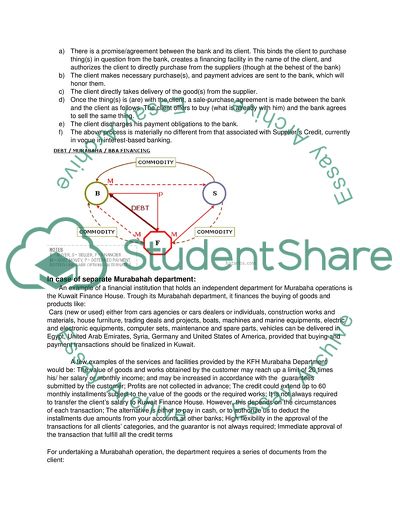Cite this document
(Murabahah - the Accounting Measurement in Islamic Banks Research Paper, n.d.)
Murabahah - the Accounting Measurement in Islamic Banks Research Paper. Retrieved from https://studentshare.org/finance-accounting/1729678-questionaire
Murabahah - the Accounting Measurement in Islamic Banks Research Paper. Retrieved from https://studentshare.org/finance-accounting/1729678-questionaire
(Murabahah - the Accounting Measurement in Islamic Banks Research Paper)
Murabahah - the Accounting Measurement in Islamic Banks Research Paper. https://studentshare.org/finance-accounting/1729678-questionaire.
Murabahah - the Accounting Measurement in Islamic Banks Research Paper. https://studentshare.org/finance-accounting/1729678-questionaire.
“Murabahah - the Accounting Measurement in Islamic Banks Research Paper”, n.d. https://studentshare.org/finance-accounting/1729678-questionaire.


